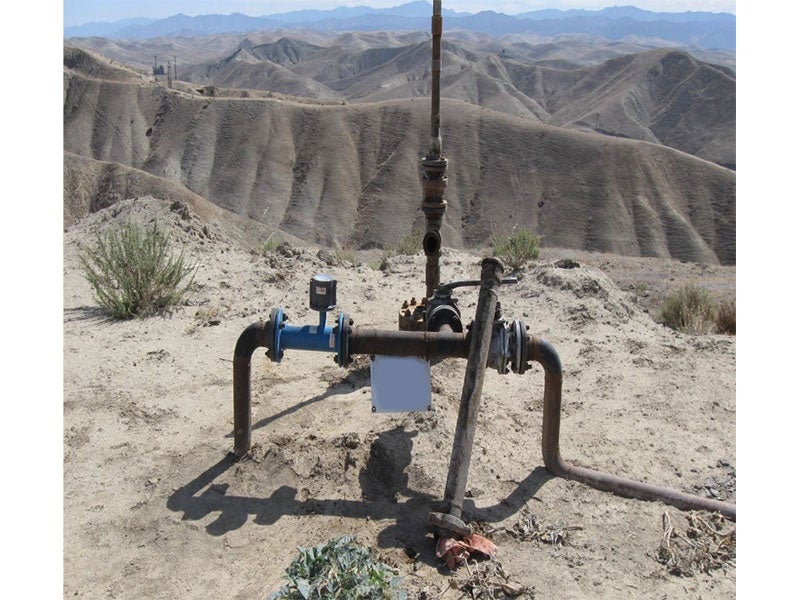Lawsuit Seeks to Halt Illegal Dumping of Toxic Oil Waste Into California’s Imperiled Water Supplies
Environmental groups challenge ‘emergency’ rules permitting unlawful contamination of protected aquifers
Contact
A lawsuit filed today by environmental organizations seeks to halt illegal oil industry operations that are dumping millions of gallons of toxic oil waste a day into California’s dwindling underground water supplies.
The lawsuit, filed by Earthjustice in Alameda County Superior Court on behalf of the Center for Biological Diversity and Sierra Club, challenges recently unveiled “underground injection control” regulations from California’s Division of Oil, Gas and Geothermal Resources (DOGGR).
The regulations allow oil companies to continue injecting oil industry wastewater and other fluids into protected aquifers until February 2017, in violation of state and federal law and despite a water-scarcity crisis caused by the worst drought on record. DOGGR pushed the rules through in just a few days, characterizing inconvenience to the oil industry from interrupting its illegal injections as a public “emergency.”
Today’s lawsuit asks the court to declare the new regulations illegal and force California officials to halt illegal oil industry injection operations in the state.
DOGGR has admitted allowing thousands of oil industry wells to inject fluids, including wastewater, directly into protected aquifers, in clear violation of the law. These illegal injections are contaminating underground water in scores of aquifers across the state, from Monterey to Kern and Los Angeles counties (see interactive map).
Oil regulators, the lawsuit says, issued emergency regulations to try to dodge obligations to protect California’s water from illegal contamination by oil waste. “These rules turn the definition and purpose of a public emergency upside down by employing [California’s] regulatory emergency powers to allow the continuance of admittedly illegal injection of oil industry wastewater into underground sources of drinking water,” the legal complaint states.
“Instead of halting the operations of these underground injection wells, these regulations allow DOGGR to delay shutting down illegal operations for nearly two more years,” said Earthjustice Staff Attorney Will Rostov. “This is DOGGR outrageously re-writing the law to allow needless and unlawful contamination of drinking water during a severe drought for the benefit of the oil industry.”
“It’s inexcusable that state regulators are letting oil companies dump toxic wastewater into California’s water supplies during the worst drought in 1,200 years,” said Hollin Kretzmann, a staff attorney for the Center for Biological Diversity. “The oil industry’s illegal injections need to stop immediately to protect our groundwater.”
Oil wastewater in California typically contains high levels of cancer-causing benzene, according to testing done by DOGGR and oil companies. Wastewater can also include fracking fluid, which often contains chemicals that are linked to serious human health problems, including cancer and birth defects.
“Existing state and federal laws rightly recognize that groundwater is a precious commodity, and for decades, the law has protected both the aquifers already in use as well as those that might come into future use,” said Nathan Matthews of Sierra Club. “DOGGR's emergency rule turns legal tradition on its head and gives the oil and gas industry free rein to contaminate California's aquifers prior to determining whether the ground water will be needed in the future.”
DOGGR admits it has failed to adequately safeguard protected aquifers from oil industry pollution for years. But oil regulators have shut down just 23 of about 2,500 injection wells identified as operating illegally in protected aquifers. In proposing the emergency regulations, DOGGR argued that “the oil industry’s long-term business plans might be affected if required to comply with existing state and federal law.”
In letters dated April 14, 2015, Earthjustice, the Center for Biological Diversity and Sierra Club urged the California Office of Administrative Law, which approved DOGGR’s regulations, to reject DOGGR’s emergency rules.

Additional Resources
About Earthjustice
Earthjustice is the premier nonprofit environmental law organization. We wield the power of law and the strength of partnership to protect people's health, to preserve magnificent places and wildlife, to advance clean energy, and to combat climate change. We are here because the earth needs a good lawyer.